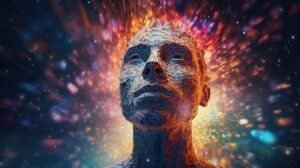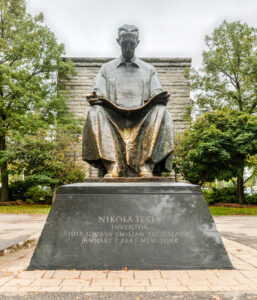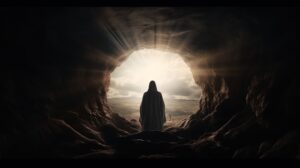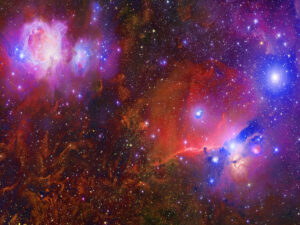The road is long, with many a winding turn
That leads us to who knows where, who knows where.
But I’m strong! Strong enough to carry him.
He ain’t heavy, he’s my brother.
So on we go. His welfare is of my concern.
No burden is he to bear. We’ll get there.
For I know he would not encumber me.
He ain’t heavy, he’s my brother.
If I’m laden at all, I’m laden with sadness
That everyone’s heart isn’t filled with the gladness
Of love for one another!
– Bob Russell & Bobby Scott, from “He Ain’t Heavy, He’s My Brother” (1969)
 We tend to think of history as a pageant where you and I are just witnesses, and not as something that we might have any part in helping to create. And yet it strikes me now as I look at this world that each individual’s part in creating the history that is daily being made, and that then is recorded in our history books, is sometimes not peripheral at all; but now and then our roles in making history can become surprisingly central. And all too often, too, very many people who consider themselves to be good-hearted souls will play their innocent-feeling parts in creating what later are seen to have been some pretty gigantic historical screw-ups. Sadly, that too often can be seen in retrospect to have been true, even if very many of us might rather die than to find ourselves creating the miserably wrong kind of history!
We tend to think of history as a pageant where you and I are just witnesses, and not as something that we might have any part in helping to create. And yet it strikes me now as I look at this world that each individual’s part in creating the history that is daily being made, and that then is recorded in our history books, is sometimes not peripheral at all; but now and then our roles in making history can become surprisingly central. And all too often, too, very many people who consider themselves to be good-hearted souls will play their innocent-feeling parts in creating what later are seen to have been some pretty gigantic historical screw-ups. Sadly, that too often can be seen in retrospect to have been true, even if very many of us might rather die than to find ourselves creating the miserably wrong kind of history!
What has me thinking about this now is reading this paragraph in an opinion-piece in my email news feed recently: “Everyone likes to believe that if they had been alive in the 1930s and 1940s, they would have stood up to the Nazis, that if they had been in those circumstances, they would have acted like some combination of Winston Churchill, Oskar Schindler, Captain America, and the Ministry of Ungentlemanly Warfare. And yet, here we are in 2024, seven months after a well-armed, well-funded terrorist group/quasi-governmental entity — which has never renounced its desire to ‘annihilate the Jews’ — committed the biggest mass slaughter of Jews since the Holocaust, and U.S. policy aims to do everything possible to prevent the Israel Defense Forces from moving into Rafah and finishing off Hamas. Forget standing up to evil. Our government wants to make sure evil gets to live long enough to fight another day.”
 And I know what you may be thinking as you read these words. In the heat of the moment, how can you be sure that you are figuring out and choosing the side of the angels? Aye, there’s the rub, as our exalted friend Mr. Shakespeare would so wisely say. It seems to me that either you must fully inform yourself right away, or else you must somehow remain out of the fray. You do that, or you risk becoming evil’s unfortunately gullible pawn. And so many young people this spring have sadly chosen what might well be the wrong side. There have been some big, well-funded “student uprisings” on many college campuses this spring in support of Hamas, but about half of the demonstrators in each case seem now to have been not actually enrolled students at the schools involved. And when reporters have asked the enrolled students who were demonstrating if they could explain what the issues in these demonstrations were, many of the students have been puzzled and unable to answer.
And I know what you may be thinking as you read these words. In the heat of the moment, how can you be sure that you are figuring out and choosing the side of the angels? Aye, there’s the rub, as our exalted friend Mr. Shakespeare would so wisely say. It seems to me that either you must fully inform yourself right away, or else you must somehow remain out of the fray. You do that, or you risk becoming evil’s unfortunately gullible pawn. And so many young people this spring have sadly chosen what might well be the wrong side. There have been some big, well-funded “student uprisings” on many college campuses this spring in support of Hamas, but about half of the demonstrators in each case seem now to have been not actually enrolled students at the schools involved. And when reporters have asked the enrolled students who were demonstrating if they could explain what the issues in these demonstrations were, many of the students have been puzzled and unable to answer.
When I look back at history in my own fields of interest, I similarly see a stunning and confounding lack of knowledge in most minds about even the most basic issues. For example, as everyone knows for a certain fact, God is pure and God demands purity of us as well, so God could never forgive us for our sins unless God gets to watch Jesus die on a cross as a pure sacrifice for our sins. Right? Isn’t that the whole basis for the Christian religion? God sent us Jesus to die for our sins because otherwise we would have no way to redeem ourselves from God’s judgment. Isn’t that exactly right? “For God so loved the world that He gave His only begotten Son…”? Well, please think again, and then open your Bible. Jesus tells us right in the Biblical Gospel of John at JN 5:22 that “Not even the Father judges anyone,” and then Jesus adds at JN 12:47 that He Himself doesn’t judge us, either. Since neither God nor Jesus ever judges us, then why did Jesus have to die for our sins?
 The plain and simple Gospel truth is that Jesus did not die for our sins. That whole Roman idea which is at the heart of the world’s most prominent religion is nonsensical and just plain wrong. It is insulting to God and humiliating to Jesus. Furthermore, Jesus told me when I visited Him in the astral plane in the summer of 2022 that the reason why He chose to die a public death on the cross and then come alive again was to demonstrate once and for all that human life is eternal. He did it as a demonstration! Jesus was having trouble convincing people that they were never going to die. The custom at that time was to lay out the dead in caves until they had rotted away, and then to save their bones in bone-boxes, called ossuaries. So the people that Jesus was teaching still had great-great-grampa’s bones preserved. Here they are, Jesus! We love you, but don’t tell us this guy is still alive, because we know better. Here he is, right here. The folks that Jesus was teaching needed a demonstration, so Jesus decided to give them one, and that was what His dramatic crucifixion-and-resurrection display was all about. If the Roman explanation had been correct, then Jesus would not have had to rise again, since it was only His sacrificial death for our sins that would have mattered.
The plain and simple Gospel truth is that Jesus did not die for our sins. That whole Roman idea which is at the heart of the world’s most prominent religion is nonsensical and just plain wrong. It is insulting to God and humiliating to Jesus. Furthermore, Jesus told me when I visited Him in the astral plane in the summer of 2022 that the reason why He chose to die a public death on the cross and then come alive again was to demonstrate once and for all that human life is eternal. He did it as a demonstration! Jesus was having trouble convincing people that they were never going to die. The custom at that time was to lay out the dead in caves until they had rotted away, and then to save their bones in bone-boxes, called ossuaries. So the people that Jesus was teaching still had great-great-grampa’s bones preserved. Here they are, Jesus! We love you, but don’t tell us this guy is still alive, because we know better. Here he is, right here. The folks that Jesus was teaching needed a demonstration, so Jesus decided to give them one, and that was what His dramatic crucifixion-and-resurrection display was all about. If the Roman explanation had been correct, then Jesus would not have had to rise again, since it was only His sacrificial death for our sins that would have mattered.
Now let’s consider Jesus’s parable of the rich man and the camel going through the eye of a needle. Many people down through history have been deeply troubled by this story, since it seems to imply that being at all wealthy is in itself an unpardonable sin. But this story has a simple explanation.
 In this case, a wealthy young man wanted to become one of Jesus’s followers. And Jesus said to him, “If you wish to be perfect, go and sell your possessions and give to the poor, and you will have treasure in heaven; and come, follow Me.” 22 But when the young man heard this, he went away grieving; for he was one who owned much property.23 And Jesus said to His disciples, “Truly I say to you, it is hard for a rich man to enter the kingdom of heaven. 24 Again I say to you, it is easier for a camel to go through the eye of a needle, than for a rich man to enter the kingdom of God” (MT 19:21-24).
In this case, a wealthy young man wanted to become one of Jesus’s followers. And Jesus said to him, “If you wish to be perfect, go and sell your possessions and give to the poor, and you will have treasure in heaven; and come, follow Me.” 22 But when the young man heard this, he went away grieving; for he was one who owned much property.23 And Jesus said to His disciples, “Truly I say to you, it is hard for a rich man to enter the kingdom of heaven. 24 Again I say to you, it is easier for a camel to go through the eye of a needle, than for a rich man to enter the kingdom of God” (MT 19:21-24).
Wow. Well, that is pretty shocking! I used to swallow hard whenever I read that passage. Does it mean that the whole Western world can pretty much give up on ever achieving the kingdom of God? Well, no it doesn’t. You and I read Jesus here to be callously saying that for someone to have very much money in the bank makes it impossible for him to go to heaven. And that is how people have always read it, all down through the ages. The Catholic Church has made a fortune selling indulgences using that particular passage. Rumor even has it that Frank Sinatra paid the Catholic Church ten million dollars as his own particular get-into-heaven-after-all ticket price. But it is always important to understand the context in which Jesus is teaching.
There was a very narrow gate into Jerusalem in the Jesus years that was called The Needle’s Eye. In order for pack camels to pass through The Needle’s Eye, their packs had to first be removed, or at least much reduced, which made this an ideal analogy for Jesus to use in teaching His followers that too much wealth is too much of a distraction, so it makes it harder for us to grow spiritually. All His listeners would of course have known about that gate, and they would have very well understood Jesus’s message here.
 Now let’s consider another place where experts who certainly ought to know better are trying to block the truth from people for their own selfish reasons, and they are thereby causing tremendous harm. The whole vast issue of terminal lucidity and paradoxical lucidity has been well known in the medical community and in the broader scientific community for more than half a century. The fact that people who are approaching death, and whose brains are completely fried and may have been fried for decades, will sometimes spontaneously sit up and talk normally, remember everything normally, and seem to be just fine, sometimes for hours or even for days, is very well and broadly known! This impossible fact has been repeatedly documented in many deaths and in many countries. And if it were studied and well understood, just think of what amazing things all of mainstream science might learn! What is the mechanism that makes this possible? How does it happen? Why does it happen?How is it even conceivable that people whose brains have been severely damaged for so long will suddenly and magically, although very briefly, remember and communicate entirely normally again?
Now let’s consider another place where experts who certainly ought to know better are trying to block the truth from people for their own selfish reasons, and they are thereby causing tremendous harm. The whole vast issue of terminal lucidity and paradoxical lucidity has been well known in the medical community and in the broader scientific community for more than half a century. The fact that people who are approaching death, and whose brains are completely fried and may have been fried for decades, will sometimes spontaneously sit up and talk normally, remember everything normally, and seem to be just fine, sometimes for hours or even for days, is very well and broadly known! This impossible fact has been repeatedly documented in many deaths and in many countries. And if it were studied and well understood, just think of what amazing things all of mainstream science might learn! What is the mechanism that makes this possible? How does it happen? Why does it happen?How is it even conceivable that people whose brains have been severely damaged for so long will suddenly and magically, although very briefly, remember and communicate entirely normally again?
And most importantly of all, why has this phenomenon of terminal lucidity never been scientifically investigated? The answer to this last question is a simple one. By now, many of the gatekeepers who are so ardently enforcing the mainstream scientific dogma of materialism and keeping the terminal lucidity phenomenon from being studied scientifically actually do understand pretty well what is going on. And they know that these amazing moments of normal interaction with people whose brains are severely damaged are episodes when the mind has separated from its connection to the brain.Because, what else could these episodes conceivably be? And precisely because on a personal level, some of them do understand these phenomena pretty well, they know how groundbreaking a broader understanding could be. So the mainstream scientific gatekeepers will not allow terminal lucidity to be studied at all. They give as their pathetic excuse the fact that the phenomenon is “personal” to the grieving, and they “don’t want to interfere.”
 They know that once these phenomena are studied and the reports are published, quite possibly these gatekeepers’ century-long materialist jig will at last be up. They are like frantic little Dutch boys with all their fingers in the dike, trying to keep the flood of truth from overwhelming the field of materialist science. And yes, even though the jig really ought to have been up long since, here is yet one more one-day scientific conference about to happen in New York featuring the brain and consciousness. After all, they have to keep the truth at bay for just a bit longer. At least until, please God, they can get their own children educated and their own retirements funded. Please note in particular all the laughably fuzzy wording! This is how you write when you want to suggest that progress is being made, when in fact no progress is being made at all. This is a conference designed for the ignorant. And please especially note that they insist on knowing the names of all the attendees in advance, so names can be googled and no freethinkers like yours truly and certain many others that we could name will be admitted.
They know that once these phenomena are studied and the reports are published, quite possibly these gatekeepers’ century-long materialist jig will at last be up. They are like frantic little Dutch boys with all their fingers in the dike, trying to keep the flood of truth from overwhelming the field of materialist science. And yes, even though the jig really ought to have been up long since, here is yet one more one-day scientific conference about to happen in New York featuring the brain and consciousness. After all, they have to keep the truth at bay for just a bit longer. At least until, please God, they can get their own children educated and their own retirements funded. Please note in particular all the laughably fuzzy wording! This is how you write when you want to suggest that progress is being made, when in fact no progress is being made at all. This is a conference designed for the ignorant. And please especially note that they insist on knowing the names of all the attendees in advance, so names can be googled and no freethinkers like yours truly and certain many others that we could name will be admitted.
 My dear ones, it is important that you understand one more thing. All the information that Thomas and I discuss with you in this blog each week is broadly available to all the world now. The deliberately prolonged feigned ignorance of the truth that matter is not material by these supposed scientific experts is still kept barely suppressed only by their own force of will. People who love truth can readily find the truth in the year 2024, and can readily understand it and can share it with you, even when we have no formal education in any of these fields. Not in theology, physics, neurology, history, or government. We who share these truths with you are just vastly and insatiably curious! But truth is truth, and no amount of trying to hide the truth from the wider world on the part of people who have built their sorry little careers on pretending that the truth is otherwise is going to change what is objectively true. Just wait and watch, my precious friends. As the clock of earth’s history ticks quietly on, God’s truths will always eventually be found to be right.
My dear ones, it is important that you understand one more thing. All the information that Thomas and I discuss with you in this blog each week is broadly available to all the world now. The deliberately prolonged feigned ignorance of the truth that matter is not material by these supposed scientific experts is still kept barely suppressed only by their own force of will. People who love truth can readily find the truth in the year 2024, and can readily understand it and can share it with you, even when we have no formal education in any of these fields. Not in theology, physics, neurology, history, or government. We who share these truths with you are just vastly and insatiably curious! But truth is truth, and no amount of trying to hide the truth from the wider world on the part of people who have built their sorry little careers on pretending that the truth is otherwise is going to change what is objectively true. Just wait and watch, my precious friends. As the clock of earth’s history ticks quietly on, God’s truths will always eventually be found to be right.
It’s a long, long road, from which there is no return.
While we’re on the way to there, why not share?
And the load doesn’t weigh me down at all!
– Bob Russell & Bobby Scott, from “He Ain’t Heavy, He’s My Brother” (1969)






























































